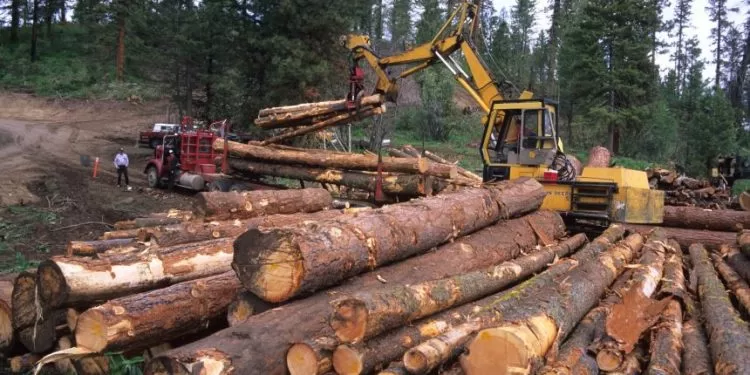“Wood Shortage Looms as 75 Local Timber Firms Shut Down”

- 75% of Ghana's timber companies have collapsed due to forest fires.
- Remaining companies struggle to access raw materials.
- Ghana may spend millions on timber imports.
- Industry collapse poses environmental concerns.
Ghana’s timber industry is facing a severe crisis, with 75 out of 100 local manufacturing companies collapsing due to the continuous destruction of forests by bushfires. The remaining 25 companies, located in the Western North, Eastern, and Central Regions, are struggling to secure raw materials for production, fearing imminent closure.
The Ghana Timber Millers Organisation’s CEO, Dr. Kwame Asamoah Adam, expressed concerns about the industry’s dire situation in an interview with Citi Business News. He revealed that the number of medium to large-sized companies has drastically reduced, with only 25 surviving companies currently operating, exporting, and providing employment.
Dr. Adam attributed the decline in the industry to the reduction in raw materials, specifically round logs, which has decreased from 1.2 million cubic meters 20 years ago to approximately 500,000 cubic meters currently. The decrease in production areas is the main reason for the reduction in raw materials, making it challenging for companies to access the necessary resources for production.
The collapse of the timber industry poses a significant risk to Ghana’s economy, as the country may be forced to spend millions of cedis on timber imports to meet demand. The situation also raises concerns about the environmental impact of forest destruction and the need for sustainable forest management practices to prevent further degradation.
The government and industry stakeholders must take urgent action to address the crisis, including implementing measures to prevent forest fires, promoting reforestation, and supporting local timber companies. The fate of Ghana’s timber industry hangs in the balance, and prompt intervention is necessary to prevent a complete collapse, which would have far-reaching economic and environmental consequences.






